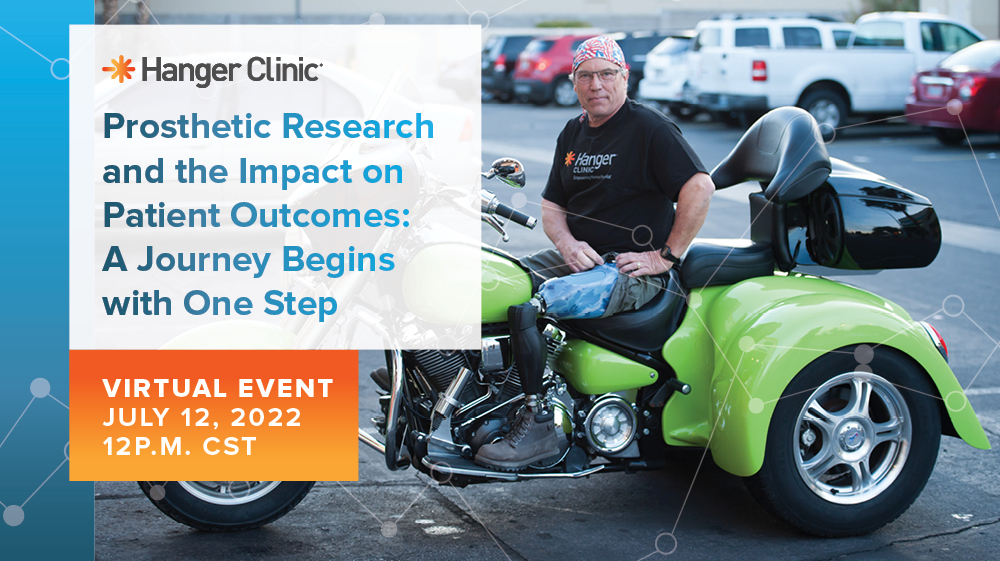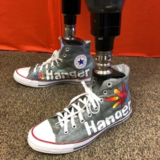Prosthetic Research and the Impact on Patient Outcomes: A Journey Begins with One Step

Date and Time
Location
Virtual Event
Course Level: Introductory
Target Audience: PT/PTA, OT/OTA, RN, CM, O&P Clinicians (CE), MD (non-CE)
CE Contact Hours: 1 hour (60 Minutes)
Join us for this virtual event for all healthcare professionals who work and care for patients with amputation. This course will take participants through a story of patient recovery, and demonstrate how current research results is an integral piece to the success of every patient.
Participants will learn the impact of prosthetic technology on mobility, quality of life, fall risk/safety, recovery, overall patient satisfaction, and health system cost as supported by recent research studies. Key takeaways of this course will include information that has practical implications in your daily practice.
Objectives
Upon completion of this program, learners will be able to:
- Recognize the correlation among patients’ prosthetic rehabilitation and high levels of Quality of Life, (QOL), Patient Satisfaction (Sat), and sustained mobility.
- Demonstrate how comorbidities may impact prosthetic mobility
- Identify how advanced technology can significantly reduce the odds of incurring an injurious fall for individuals with diabetic/dysvascular amputation.
- Relate the impact of fall risk/prevalence on mobility, QOL, Sat and Healthcare costs.
- Comprehend the impact of time to delivery of prosthesis on Healthcare Costs and Injurious Fall risk in the first 12 months post-op recovery period.
- Appreciate how current coverage decisions and documentation considerations may impact prosthetic componentry selection.
Session Outline
- Comorbidities and their Impact on Mobility and Function
- Relationship between Mobility, Quality of Life, and Patient Satisfaction
- Current Documentation Considerations for Lower Limb Prosthetics
- Feature and highlight applicable published/reviewed research studies
Research Studies Included
SAFE-AMP
Stability and Falls Evaluation after AMPutation is a series* of studies that examines the need for greater access to appropriate rehabilitation solutions for below and above-knee amputees in the diabetes community.
Course includes
SAFE-AMP I
OASIS
The Outcomes ASsessment and DISsemination (OASIS) series* compares the effectiveness of a variety of orthotic and prosthetic components across different patient groups to ultimately impact and enhance patient outcomes.
Course includes
OASIS I
*Only the first study in the SAFE-AMP series and OASIS series are published at this time.
Speakers

Shane Wurdeman, PhD, CP, FAAOP(D)
Director, Clinical Research
Shane entered the field of O&P as a technician before transitioning to working as an orthotist/prosthetist, and finally into his role as a principal investigator.

Leslie Green, MA, MA, MA, MA, MSW, Ed.S
Director of Patient Advocacy & Education, North Central Zone
Leslie is an educator, former social worker, amputee patient, peer mentor, and limb loss community advocate for hundreds of patients like herself.

Featured Clinician
Education Specialist
Michelle has 20+ years of clinical experience as a Physical Therapist and has taught courses nationwide for PT, OT and SLPs on a myriad of clinical interventions.